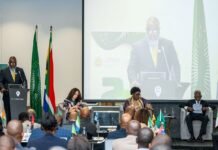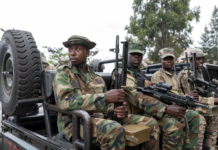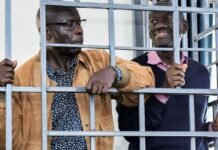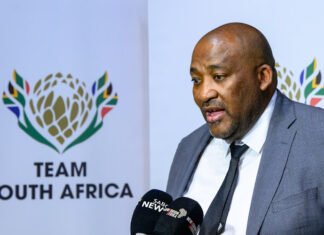Armed groups have carried out a series of attacks on villages in central Nigeria, resulting in the deaths of at least 160 people, according to local government officials.
The toll is a significant increase from the initial figure reported by the army, which stated that only 16 people had been killed. The region has been plagued by religious and ethnic tensions for several years.
The head of the local government in Bokkos, Plateau State, Monday Kassah, confirmed that as many as 113 people were killed in the ongoing hostilities that persisted from Saturday to early Monday.
[ Nigeria’s Viral Ballet Boy Moves From Lagos To Elite Dance School ]
Kassah described the attacks as “well-coordinated,” with military gangs, locally known as “bandits,” targeting more than 20 different communities and setting houses on fire. Over 300 wounded individuals were transferred to hospitals in Bokkos, Jos, and Barkin Ladi.
The local Red Cross reported a provisional toll of 104 deaths in 18 villages in the Bokkos region. Additionally, at least 50 people were reported dead in several villages in the Barkin Ladi area, according to Dickson Chollom, a member of the state parliament.
Chollom condemned the attacks and called for swift action from the security forces, stating that the community would not succumb to the tactics of these “merchants of death.”
The attacks, which initially started in the Bokkos area, spilled over into the neighboring Barkin Ladi area, resulting in the deaths of 30 people. Plateau State governor Caleb Mutfwang condemned the violence, describing it as “barbaric, brutal, and unjustified.”
The governor’s spokesperson, Gyang Bere, assured that proactive measures would be taken by the government to curb the ongoing attacks against innocent civilians.
The region where the attacks took place is located on the dividing line between Nigeria’s mostly Muslim north and mainly Christian south. Gunfire was still heard on late Monday afternoon, indicating the volatile situation in the area.
Markus Amorudu, a resident of Mushu village, recounted the fear and confusion during the attack, with people hiding as shots rang out. Many were captured by the assailants, some were killed, and others were wounded.
Amnesty International criticized the Nigerian authorities for their failure to end the frequent deadly attacks on rural communities in Plateau state. The organization expressed concern over the security situation and called for urgent action to protect the lives of civilians.
Northwest and central Nigeria have long been terrorized by bandit militias operating from deep forest bases, engaging in looting and kidnapping for ransom in villages.
The competition for natural resources between nomadic herders and farmers, combined with rapid population growth and climate pressures, has further exacerbated social tensions and sparked violence.
In addition to these attacks, northeastern Nigeria has been grappling with a jihadist conflict since 2009, resulting in the deaths of tens of thousands of people and the displacement of approximately two million.
Boko Haram and rival groups linked to the Islamic State have been engaged in a battle for supremacy in the region.
President Bola Ahmed Tinubu, who was elected in February, has promised to attract more investment to Nigeria to tackle the country’s persistent security challenges. The government is expected to take proactive measures to address the ongoing attacks and ensure the safety and security of its citizens.
Catch up with the latest news from The Times Post on WhatsApp by following our channel. Click here to join.















